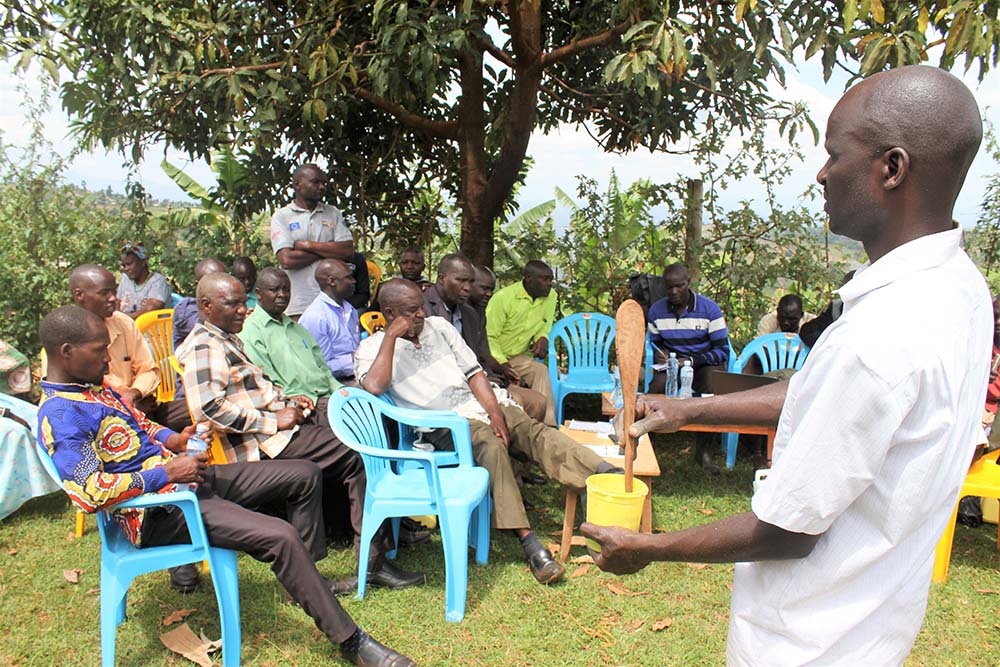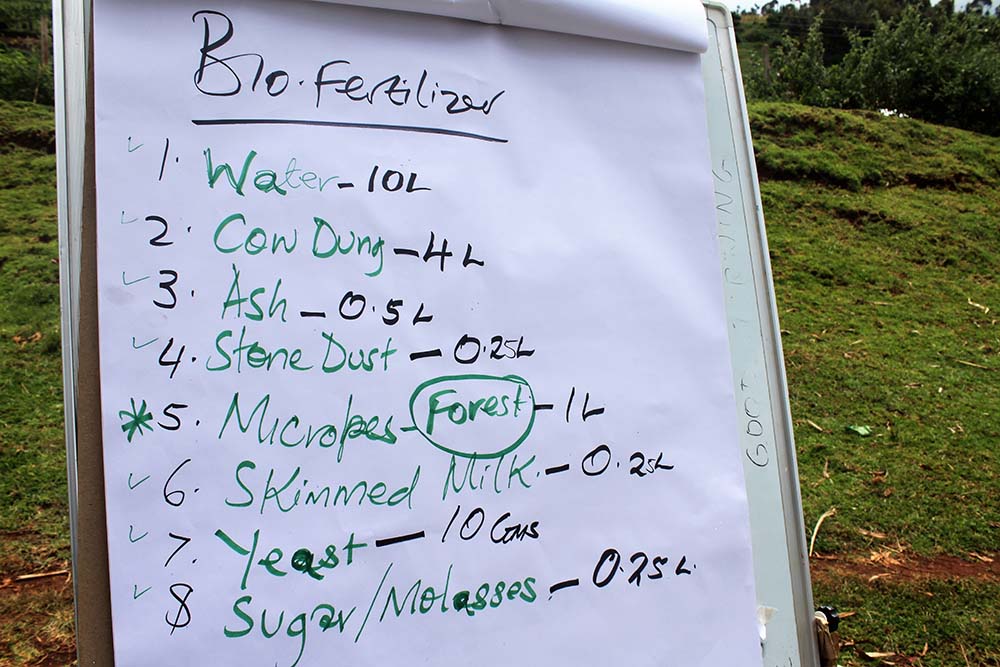Farmers in the eastern Uganda district of Bukwo are championing the use of organic fertilisers.
So as to boost soil fertility, farmers in the district are embroiled in learning as well as applying homemade fertilisers to their farms.
Yesterday, on October 7, New Vision visited the district and at Siit parish, Chesower sub county in T’oo county, a group of farmers could be seen engaged in capacity building training.
In particular, Siit Integrated Farmers Development Association (SIFDA) was championing the bio-fertiliser skilling programme.
Simon Sabila, the SIFDA chairperson, said the farmers across the district have embraced the organic fertiliser.
The farming community has loved it a lot because it helps enhance soil fertility and yield productivity. Given the hiked prices of inorganic fertilisers, Sabila believes bio-fertilisers are cheaper and affordable for all.
Currently, the factory-made fertilizer is selling between sh120,000 to sh150,000 per mini-sack no wonder Bukwo farmers said organic fertiliser is the best alternative.
President Yoweri Museveni in September urged Ugandan farmers to equally embrace bio-fertilisers since it does not destroy soil and its productive organisms.
President Museveni’s Directive
In a story carried by the New Vision on Friday September 16, 2022 titled Museveni Wants Ban on Artificial Fertilizers, Dangerous Chemical, the President directed the line ministries to prioritise organic manure.
“The sub-count extension officers should sensitize farmers on using composite manure to enrich soil. Those using poultry, piggery and cows could be a good source of organic manure,” the President said.
The President reasoned that the use of bio-fertilisers would save the environment and, at the same time, promote Uganda as a source of organic products which has niche in the export market.
He urged the agriculture, finance and cooperatives ministries to ensure that artificial fertilisers are banned.
Artificial fertilisers are plant nutrients produced through chemical processes to nurture soil and foster plant growth.
It is the chemical process involved in its making that both the Bukwo farmers and President Museveni say is destructive to the environment as well as being pricey, pushing the cost of production high.

Aidenvironment trains farmers
In order to help farmers adapt to the preferred alternative by the President, Aidenvironment East Africa, a nonprofit organisation, has stepped in to help Bukwo farmers.
Dismas Cheptoek, the project field officer, says the initiative seeks to promote regenerative agriculture which aims at sustainable means of producing food while ensuring food security and environmentally friendly practices by farmers.
To make the bio-fertiliser, one needs the following; cow-dung for nitrogen, stone-dust at least 250 grams, a litre of skimmed milk to form micro-organisms, molasses or 2kg of sugar and forest bio-organisms from decomposing leaves.
In a situation where one cannot have access to micro living organisms, the usage of fermented concoction of maize bran, sugar and forest leaves or any related plant leaves.
The farmer is required to use water, an amount directly proportional to the desired quantity of bio-fertiliser.
This composition which is normally kept at the backyard is then fermented for 30 days under moderate temperatures before it is applied directly to the leaves of the plants.
Aidenvironment is currently implementing the Green Future Farming Project, which is confidentially equipping farmers with the crucial indigenous knowledge.
“An acre can be covered by 20litres of bio-fertilizer which costs the farmer between sh5,000 to sh20, 000 for buying some of those ingredients, ” Aliakim Kibet, an Aidenvironment organic manure trainer, said.
Kibet added: “Bio-fertilisers save farmers a lot of money and also ensure that their harvests are of good quality and free from any side-effects compared to any other type of fertiliser.”
Given an overwhelming number of interested farmers, Raymond Tumuhaire, the Aidenvironment’s project manager said with time, more communities would be reached by the project across the country.
Dennis Jenjje Chemusto, the Chesower LC3 chairperson, commended the organisation for intervening to fill “a crucial gap in rural farming.”
“Our farmers can now practice sustainable agriculture and be able to rip reasonable profits that will help them leave poverty behind,” Chemusto noted.

Chemusto welcome the presidential directive, which he said was going to help combat environmental degradation in Bukwo and Sebei at large.
He also urged the unemployed youth to consider venturing in bio-fertiliser-making as a new business opportunity to exploit.
“Some farmers will prefer to just buy this manure from someone so it should be a money-making venture for some of our young people. This one does not require capital in thousands or millions of shillings to start,” he said.
Sebei is a farming sub region which majorly deals in coffee, Irish potatoes, beans, maize, wheat, barley, watermelon, bananas, onions and sunflower, among others.





